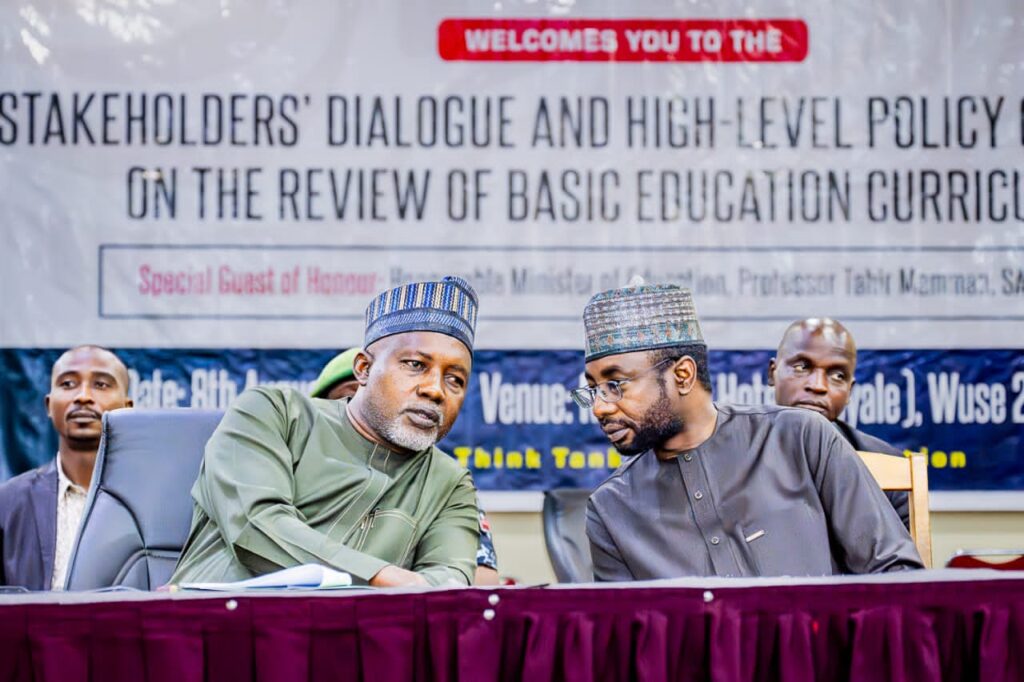The Director General of the National Information Technology Development Agency (NITDA), Kashifu Inuwa CCIE, emphasised the urgent need for integrating digital literacy and skills into Nigeria’s formal education system to better prepare citizens for the challenges they will face after graduation.
Inuwa made this statement during a Stakeholders Dialogue and High-Level Policy Committee meeting focused on the Review of Basic Education Curriculum organised by the Nigerian Educational Research and Development Council (NERDC) in Abuja.
The DG stated that one of NITDA’s primary mandates, as directed by President Bola Ahmed Tinubu, is to ensure that Nigeria achieves 95% digital literacy by 2030, with a midterm goal of reaching 70% by 2027.
He noted that this ambitious target cannot be achieved by NITDA alone, and therefore, the agency is seeking partnerships to develop digital literacy and skills curricula within the formal education system.
“We cannot do it alone. But we believe, with you, we can do it. That is why we are exploring this partnership, to work with you, to build digital literacy and skills curricula in our formal education” he added.

He noted that what was once considered science fiction is now becoming reality, and the educational system must adapt to prepare students for the challenges and opportunities of the 21st century.
Inuwa further explained that President Tinubu has tasked the ministry with accelerating the diversification of Nigeria’s economy by enhancing productivity in critical sectors through technological innovation.
While stressing that building human capital is essential for achieving this goal, as knowledge is the foundation of a robust and sustainable economy, Inuwa added that “at NITDA, our mandate is to develop IT, which is the cornerstone of meaningful development. A nation’s greatest resource is not its minerals, but its human capital, and we must be intentional about harnessing this resource.”
Inuwa also added that many professions will eventually be at risk of being overtaken by automation, which makes digital skills a necessity for future employability.
Emphasising the importance of equipping children with digital skills to maintain their cognitive abilities and foster responsible use of technology, noted that “technology is a double-edged sword, while children are often distracted by social media, the right digital skills can help them use technology for self-development.”
Buttressing DG NITDA’s statement, the Minister of State for Education, Dr. Yusuf Tanko Sununu, noted that the world is rapidly advancing into the digital era. He stressed that technology is reshaping various sectors, including agriculture and health, and that it is crucial for Nigeria to adapt.
“Technology is on the rise, and it’s either you join or get left behind. Our children’s education must provide a foundation that enables critical thinking, problem-solving, and self-protection,” the Minister said.

Dr. Sununu also highlighted the current administration’s commitment to addressing the nation’s educational challenges, including curriculum reform. He pointed out that Nigeria is one of the countries most affected by the global learning crisis, with one in five out-of-school children worldwide being Nigerian. Moreover, one in four Nigerian children suffers from poor literacy and critical thinking skills, which are significant barriers to national development.
The Minister revealed that the administration’s Marshall Plan for Education for the Community of Hope, which outlines the roadmap for the education sector from 2024 to 2027, is a comprehensive and action-oriented plan aimed at overhauling the education system. This plan, he noted, prioritises curriculum review and renewal at all levels to ensure that education in Nigeria is functional and contributes to the nation’s overall development goals.




